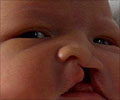A population genetic expert has urged to annul the ban on cousin marriages, insisting that they are largely based on outdated assumptions about a high degree of genetic risk for offspring.
A population genetic expert has urged to annul the ban on cousin marriages, insisting that they are largely based on outdated assumptions about a high degree of genetic risk for offspring.
While writing in open-access journal PLoS, Professor Hamish Spencer and Professor Diane Paul, a Research Associate at Harvard's Museum of Comparative Zoology, said that laws banning marriage between first cousins were "ill-advised".In the USA, there are 31 state laws that either bar cousin marriage completely, or permit it only where the couple obtains genetic counselling or is beyond reproductive age or if one partner is sterile.
"Neither the scientific nor social assumptions behind such legislation stand up to close scrutiny," said Professor Spencer.
Citing a 2002 expert review of studies, Spencer said that the risk of birth defects in offspring of cousins was much smaller than generally believed.
The US National Society of Genetic Counsellors (NSGC) report estimated the average risk as 1.7 - 2 per cent higher than the background population risk of congenital defects and 4.4 per cent higher than general risk for dying in childhood.
"Women over the age of 40 have a similar risk of having children with birth defects and no one is suggesting they should be prevented from reproducing," said Spencer.
Advertisement
Spencer said that the legislation reflects outmoded prejudices about immigrants and the rural poor and relies on oversimplified views of heredity. There is no scientific grounding for it.
Advertisement
SK









